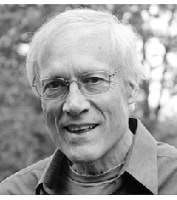Matthew 5:43-45
 Walter Wink Files
Walter Wink Files
“The command to love our enemies reminds us that our first task towards oppressors is pastoral: to help them recover their humanity. Quite possibly the struggle, and the oppression that gave it rise, have dehumanised the oppressed as well, causing them to demonise their enemies. It is not enough to become politically free; we must also become human. Nonviolence presents a change for all parties to rise above their present condition and become more of what God created them to be.”
― Walter Wink, The Powers That Be: Theology for a New Millennium
― Walter Wink, The Powers That Be: Theology for a New Millennium
| After telling the crowd to love their enemies and pray for their persecutors, Jesus then tells them why they should do this. They have a connection to those people: the Father (our Father) who gives sunshine and rain on both the “good” and the “bad” (Matt. 5:45). This also clarifies the instruction to pray for their persecutors. Initially this would likely sound as outrageous as asking them to love instead of hate their enemies. But Jesus then reminds them that “even the most despised tax collectors can love their friends,” and he asks them to do better than that: to be perfect like the Father who gives sun and rain to the good and the evil, the just and the unjust (Matt. 5:45–48)..
|
| Love’s question is never who to love-because we are to love everyone-but only how to love most helpfully. We are not to love merely in terms of feeling but in terms of service. God’s love embraces the entire world (John 3:16), and He loved each of us even while we were still sinners and His enemies (Rom. 5:8–10). Those who refuse to trust in God are His enemies; but He is not theirs. In the same way, we are not to be enemies of those who may be enemies to us. From their perspective, we are their enemies; but from our perspective, they should be our neighbors.
In 1567 King Philip II of Spain appointed the Duke of Alba as governor of the lower part of the nation. The Duke was a bitter enemy of the newly-emerging Protestant Reformation. His rule was called the reign of terror, and his council was called the Bloody Council, because it had ordered the slaughter of so many Protestants. It is reported that one man who was sentenced to die for his biblical faith managed to escape during the dead of winter. As he was being pursued by a lone soldier, the man came to a lake whose ice was thin and cracking. Somehow he managed to get safely across the ice, but as soon as he reached the other side he heard his pursuer screaming. The soldier had fallen through the ice and was about to drown. At the risk of being captured, tortured, and eventually killed-or of being drowned himself-the man went back across the lake and rescued his enemy, because the love of Christ constrained him to do it. He knew he had no other choice if he was to be faithful to His Lord |
| The Scottish Reformer George Wishart, a contemporary and friend of John Knox, was sentenced to die as a heretic. Because the executioner knew of Wishart’s selfless ministering to hundreds of people who were dying of the plague, he hesitated carrying out the sentence. When Wishart saw the expression of remorse on the executioner’s face, he went over and kissed him on the cheek, saying, “Sir, may that be a token that I forgive you”
|
| Our “enemies,” of course, do not always come in such life-threatening forms. Often they are ordinary people who are mean, impatient, judgmental, self-righteous, and spiteful-or just happen to disagree with us. In whatever personal relationships we have, God wants us to love. Whether a conflict is with our marriage partner, our children or parents, our friends and fellow church members, a devious business opponent, spiteful neighbor, political foe, or social antagonist, our attitude toward them should be one of prayerful love.
|
| “We should be happy that he [Jesus] did not say, “Like your enemies.” It is almost impossible to like some people. “Like” is a sentimental and affectionate word. How can we be affectionate toward a person whose avowed aim is to crush our very being and place innumerable stumbling blocks in our path? How can we like a person who is threatening our children and bombing our homes? This is impossible. But Jesus recognized that love is greater than like. When Jesus bids us to love our enemies he is speaking neither of eros nor philia; he is speaking of agape, understanding and creative, redemptive goodwill for all men. Only by following this way and responding with this type of love are we able to be children of our Father who is in heaven.”
|


